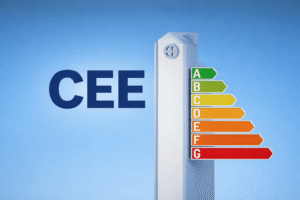Introduction
If you read our blog regularly, you know that buying in Spain is always a good idea. But more and more investors are asking themselves (and us) these (very pertinent) questions: is it more strategic to buy in your own name, via an SL or a SOCIMI (the equivalent of Reits)? And, is one system preferable depending on whether you are a Spanish tax resident or not?
This choice determines the taxation, the management of your assets and even the conditions of their transfer.
The experts at Terreta Spain are bringing out the scanner.
Resident or not, that is the question
Who is a Spanish tax resident?
You are considered a tax resident in Spain if you live there for more than 183 days a year, or if the core of your economic activity or family life is located there. Spanish tax residents are subject to IRPF, the Personal Income Tax.
- The IRPF is progressive and can go up to 47%.
Who is a foreign tax resident?
Conversely, foreign residents spend less than 183 days in the country, and their Spanish income is subject to IRNR, the Non-Resident Income Tax.
- The IRNR is 19% for EU members and 24% for non-EU citizens.
Buying in your own name: advantages and disadvantages
The advantage of buying in your own name is its simplicity. The downside is taxation, especially if you plan to invest in multiple properties.
For non-residents
- Income from real estate rentals is subject to IRNR, i.e., 19% or 24% depending on the country of residence.
- It is possible to deduct several expenses such as loan interest, community fees, repair costs, furniture, etc.
- No deductions are possible for non-EU residents.
- Transmission is complex and often costly.
For residents
If you are a resident, buying in your own name is wise if you have few properties (and little income).
- Income from real estate rentals is subject to IRPF and its progressive tax scale.
- Expense deductions are broader than for non-residents. They go up to a 50% reduction on net rents (for new contracts in 2025).
- Transmission is simpler than in the case of non-residents but can be complex depending on the family situation.
Need help with your project? Discuss with one of our experts.
Key takeaway: Own name = first-time investor or purchase of a second home.
Discover and download our complete guide right here.
Creating a Sociedad de responsabilidad Limitada
Definition: What is an SL?
Simply put, an SL is a company that allows you to hold, manage, and transfer assets in Spain within a secure and fiscally optimized framework.
It offers great management flexibility, does not require a large share capital, and protects the partners whose liability is limited to the capital contributed. In short, your personal assets are protected.
The Spanish SL is the equivalent of the SARL in France, the SRL in Italy, the GmbH in Germany, the LLC in the United States, or the LTD in the United Kingdom.
Prerequisite: When is renting considered an economic activity?
Are you planning to invest in several properties and develop a medium- or large-scale rental business? Then, creating a housing rental company is a good idea.
However, you need to conduct a real economic activity. According to Article 5.1 of Law 27/2014 on Corporation Tax, the rental of real estate is considered an economic activity as soon as a person is employed full-time with an employment contract.
What are the key advantages of the SL?
The taxation is advantageous.
- For SLs, the corporate income tax (IS, Impuesto sobre Sociedades) rate is fixed at 25%, with a reduced rate of 15% for the first two profitable fiscal years. This applies to capital gains.
- Broad deduction of expenses: loan interest, renovations, various fees, depreciation, management fees, maintenance, furniture, etc. This is a significant advantage when owning multiple properties.
- Optimization of wealth tax: the assets are held by the company, which can reduce your wealth tax base, the Impuesto sobre el Patrimonio.
Legend: to declare your corporate tax, you must complete form 200; here is an example.
Source: Agencia Tributaria
Collective management and facilitated transfer
Opting for a Sociedad de responsabilidad Limitada is ideal if you wish to invest with others. Furthermore, the transfer is facilitated by the assignment of shares.
Bank credibility
An important point: investing through an SL inspires confidence with a bank if you need a loan.
Special rental regime
You can benefit from an even more advantageous special regime if:
- You own 8 or more properties.
- You keep the properties for rent for a minimum of 3 years.
- You maintain separate accounting for each dwelling.
In this case, jackpot:
- 40% bonus on the portion of tax corresponding to rental income.
- Reduced corporate tax rate of 15%, compared to 25% in general.
- Super reduced VAT of 4% for the purchase of new housing for long-term rental use by these companies.
The disadvantages of investing via an SL
There are disadvantages to opening and managing an SL, and it is best to be aware of them.
- Creation and management fees.
- Administrative obligations.
- Possible double taxation depending on the country of residence (a majority of countries, more than 90, have signed double taxation avoidance agreements with Spain, but this is not the case for Denmark in the EU, Singapore, or Hong Kong, for example).
- An SL structure is unsuitable for the purchase of your primary residence.
- Please note that to benefit from the tax advantages of the SL, you must be able to precisely justify your business activity.
Terreta's advice: remember to keep a clear record of your activity: lease agreement, management mandate, invoices, etc.
Good to know:
- In the Community of Madrid, real estate companies can benefit from a reduced rate of 2% instead of the standard rate of 6% on the Tax on Patrimonial Transfers (ITP) when they purchase a property intended for resale within 3 years.
- In the Valencian Community, there is a 50% or 70% reduction in ITP for SLs if the property is subject to renovation work or is intended for rental.
- Please note that Catalonia has just ended (March 2025) the 70% reduction in ITP for real estate companies for resale purposes.
- In Andalusia, when a property is acquired for resale (within 5 years), an ITP rate of 2% may be applied.
From what threshold is it worthwhile to buy through an SL?
For residents subject to IRPF: it is estimated that below €40,000 of annual net profit, the SL is not worthwhile. Below this threshold, it is better to opt for the simplicity and tax benefits of purchasing in your own name.
For non-residents subject to IRNR: if your rental income is rather low and you have few expenses, we recommend that you buy in your own name. This will save you administrative burdens.
BUT if you have a lot of expenses to deduct (renovation, depreciation, interest, etc.), the SL can become worthwhile. It allows you to deduct them before taxes, which is not possible in your own name with the IRNR.
Practical case
- An investor earns €60,000 in gross profit over the year
- He can deduct €10,000 in expenses if he buys in his own name (IRPF, IRNR)
- He can deduct €20,000 in expenses if he buys through a company (SL)
| Regime | Taxable base | Rate | Annual tax |
| EU IRNR | 50 000 | 19% | 9 500 |
| NON-EU IRNR | 60 000 | 24% | 14 400 |
| IRPF | 50 000 | 30% (on average) | 15 000 |
| SL | 40 000 | 25% (or 15%) | 10,000 (or 6,000) |
In early 2025, as part of new regulations aimed at curbing the housing crisis, Pedro Sánchez symbolically mentioned a radical measure: introducing a deterrent tax that could reach 100% of the purchase price for non-resident foreigners from outside the EU. This extreme proposal aimed to limit international investors' access to the Spanish real estate market.
Purchasing through an SL would (for the moment) circumvent this legislative change if it is confirmed.
Having trouble defining your project? Speak to a Terreta Spain expert.
Creating a Sociedad Limitada in Spain: the steps
There are 8 essential steps to create your SL:
- Reserve your company name (the name of the company).
- Open a professional bank account with a share capital of €3,000 (this is our recommendation even if the law allows you to open an account with a capital of €1 since 2022).
- Draft the articles of association.
- Sign the deed of incorporation before a notary.
- Register for taxes (Agencia Tributaria) and complete form 036 to obtain your NIF, the Tax Identification Number.
- The manager and active partners must register with Social Security by completing this PDF.
- Apply for a digital certificate from the FNMT (Fábrica Nacional Moneda y Timbre).
Allow between 15 days and 2 months for the formalities of creating the Sociedad Limitada. 💸Less than €1,000 if you are assisted by an expert (less than €500 if you take care of it yourself).
Delaguia-Luzon is a large law firm based in Valencia and specializing in commercial law, they will be able to help you in the incorporation of your company. Contact them here.
We have detailed each of these steps in our guide on Creating an SL in Spain. (to be inserted once published).
Key takeaway: SL = investor owning several properties or high expenses.
What is a SOCIMI?
SOCIMI, an alternative to explore
If neither buying in your own name nor creating an SL seems suitable for your situation, there is a third option:
➤ You can create a SOCIMI (Sociedad Cotizada de Inversión Inmobiliaria), the Spanish equivalent of REITs. These are large collective investment vehicles , set up by funds or very large portfolios, whose share capital must be greater than 5 million euros.
➤ You can buy shares in a listed SOCIMI. This allows you to invest in Spanish real estate without buying property directly.
A more passive but highly regulated solution
SOCIMIs are regulated by Law 11/2009 and allow anyone to invest in Spanish real estate without directly buying properties, but by acquiring shares in these real estate companies that own and operate real estate assets (residential, offices, shops, etc.).
Good to know:
- Listed on the stock exchange, the shares are liquid and therefore easier to sell than an apartment.
- This type of investment provides access to assets normally inaccessible to individuals, such as entire buildings or premium commercial properties.
Terreta's advice: SOCIMIs are highly focused on immediate returns. They are ideal if you want to diversify your activity without managing it.
Investment conditions
When investing, the SOCIMI must meet the following criteria:
- 80% of its income must come from rent or dividends;
- At least 80% of its assets must be housing or urban buildings intended for rental;
- It must keep its assets for at least 3 years before selling them;
- It must pay 80% of the rents received and 50% of the capital gains realized to its shareholders in the form of dividends (unless it uses this capital gain to buy back an asset within 3 years).
- If it holds shares in another SOCIMI, it must pay out all dividends received.
SOCIMI taxation: a 0% Corporate Tax
If it meets the above criteria, the SOCIMI benefits from a VERY advantageous tax regime.
- 0% IS on distributed profits.
- 95% reduction in ITP when buying a property.
If it does not respect the defined framework, it de facto loses its tax advantages. There is also a 15% withholding tax on undistributed profits.
Buying via a SOCIMI: taxation of the shareholder
If you buy SOCIMI shares, you will be subject to tax. Here's what you need to remember.
If you receive dividends
- As an individual with tax residence in Spain
➤ Dividends are subject to the IRPF scale, in the capital income category.
- As a non-resident
➤ IRNR at 19% (if you are in the EU or EEA)
➤ IRNR at 24% (outside the EU/EEA), unless there is a double taxation agreement.
If you resell your shares and make a capital gain
- You will pay capital gains tax as for a classic share, via IRPF if you are a tax resident in Spain.
- In your country of residence, if you are a non-resident.
As a non-resident, dividends and capital gains may also be taxed in your country of residence, unless a double taxation agreement avoids this double taxation.
Key takeaway: SOCIMI = passive investor or stock market diversification.
Need personalized advice? Our advisors analyze your profile and project free of charge to recommend the most suitable structure. Schedule an appointment with an expert.
Conclusion
Investing in your own name, creating an SL, or buying shares in a SOCIMI depends on your situation, your project, and your medium- to long-term vision.
The choice is yours, but don't make it alone. If you have any doubts, consult a real estate expert in Spain.
FAQ – Investing in real estate in Spain: should you buy in your own name, through an SL, or a SOCIMI?
What are the advantages of buying in your own name?
- Simple management.
- Taxation adapted to small investors (few properties).
- For residents: 50% reduction on net rental income (since 2025).
- Simpler transfer for residents.
What are the disadvantages of buying in your own name?
- Heavy taxation for large estates.
- No deductions for non-residents living outside the EU.
- Complex transfer for non-residents.
What is a Sociedad Limitada (SL)?
The SL is a limited liability company that allows you to manage, hold, and transfer real estate assets in a secure and fiscally optimized framework. The minimum recommended share capital is €3,000, and the personal assets of the partners are protected.
What are the advantages of investing through an SL?
- Fixed corporate tax rate of 25% (15% for the first two profitable fiscal years).
- Broad deduction of expenses (renovations, interest, depreciation, etc.).
- Optimization of wealth tax.
- Simplified transfer by assignment of shares.
- Increased credibility with banks.
What are the conditions to benefit from the special rental regime in an SL?
- Own at least 8 properties.
- Rent them for at least 3 years.
- Keep separate accounts for each property.
- In this case: 40% tax relief, reduced corporate tax to 15%, VAT at 4% on new purchases.
What are the disadvantages of the SL?
- Creation and management fees.
- Increased administrative obligations.
- Risk of double taxation depending on the country of residence.
- Unsuitable for a primary residence.
From what threshold does the SL become worthwhile?
- For residents: from €35,000 - €40,000 in annual profits.
- For non-residents: if you have many expenses to deduct, the SL can be advantageous.
What is a SOCIMI?
The SOCIMI is the Spanish equivalent of REITs, reserved for large portfolios (minimum capital of 5 million euros). It allows collective investment in real estate, with very advantageous taxation (0% corporate tax if conditions are met).
What are the conditions for creating a SOCIMI?
- 80% of income from rentals or dividends.
- 80% of assets in housing or urban buildings for rent.
- Retention of assets for at least 3 years.
- Distribution of 80% of rents and 50% of capital gains in dividends.
How am I taxed if I invest in a SOCIMI as a shareholder?
As a shareholder of a SOCIMI, you are taxed on the dividends received and on capital gains in the event of resale of the shares:
- If you are a tax resident in Spain, dividends and capital gains are subject to IRPF, in the category of capital income (between 19% and 28%).
- If you are a non-resident, you are subject to IRNR: 19% if you reside in the EU or EEA, or 24% if you reside outside the EU/EEA. Dividends and capital gains may also be taxed in your country of residence, unless a double taxation agreement prevents this.
What are the deadlines and costs for creating an SL?
- Deadline: 15 days to 2 months.
- Cost: less than €1,000 with support, less than €500 independently.
What regional advantages exist on purchase taxes?
- Madrid: ITP at 2% (instead of 6%) for resale within 3 years.
- Valencian Community: 50% or 70% reduction of ITP depending on use.
- Andalusia: ITP at 2% for resale within 5 years.
- Catalonia: end of the 70% bonus in March 2025.







